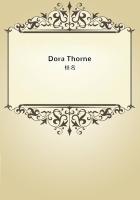After establishing the "color line," which is done about 8.30 A.M., all cadets, save those on guard and those marching on, have time to do whatever they choose. The cadets generally repair to the guard tents to see lady friends and other acquaintances, while the plebes either interest themselves in the inspection of "color men," or make ready for artillery drill at nine. The latter drill, commencing at 9 A.M., continues for one hour.
The yearlings and plebes receive instruction in the manual and nomenclature of the piece. The drill is not very trying unless the heavy guns are used--Imean unless they are drilled at the battery of twelve-pounders. Of late both classes have been drilled at batteries of three-inch rifles. These are light and easily manoeuvred, and unless the heat be intense the drill is a very pleasant one.
The first class, during this same hour, are drilled at the siege or seacoast battery. The work here is sometimes hard and sometimes not. When firing, the drill is pleasant and interesting, but when we have mechanical manoeuvres all this pleasantness vanishes.
Then we have hard work. Dismounting and mounting is not a very pleasant recreation.
At eleven o'clock, every day for a week or ten days, the plebes have manual drill. This is entirely in the shade, and when "In place, rest," is frequently given, is not at all displeasing, except when some yearling corporal evinces a disposition to haze. At five o'clock this drill is repeated Then comes parade, supper, tattoo, and best of all a long night's rest.
The last two drills continue for a few days only, and sometimes do not take place at all.
The third class, or the yearlings, have dancing from eleven to twelve, and the plebes from then till one.
In the afternoon the plebes have nothing to do in the way of duty till four o'clock. The camp is then policed, and when that is done there may or may not be any further duty to discharge till retreat parade.
After the plebes are put in the battalion--that is, after they begin drilling, etc., with their companies --all cadets attend company drill at five o'clock.
After attending a few of these drills the first class is excused from further attendance during the encampment. One officer and the requisite number of privates, however, are detailed from the class each day to act as officers at these drills.
I omitted to say that the first class received in the forenoon instruction in practical military engineering and ordnance.
What most tries plebes, and yearlings, too, is guard duty. If their classes are small, each member of them is put on guard every third or fourth day.
To the plebes, being something entirely new, guard duty is very, very obnoxious.
During the day they fare well enough, but as soon as night comes "well enough" disappears. They are liable at any moment to be visited by cadets on a hazing tour from the body of the camp, or by the officers and non- commissioned officers of the guard. The latter generally leave the post of the guard in groups of three or four. After getting into camp they separate, and manage to come upon a sentinel simultaneously and from all points of the compass.
If the sentinel isn't cool, he will challenge and Advance one, and possibly let the others come upon him unchallenged and unseen even. Then woe be to him!
He'll be "crawled over" for a certainty, and to make his crimes appear as bad as possible, will be reported for "neglect of duty while a sentinel, allowing the officers and non--commissioned officers of the guard to advance upon him, and to cross his post repeatedly without being challenged." He knows the report to be true, and if he submits an explanation for the offence his inexperience will be considered, and he will probably get no demerits for his neglect of duty.
But the best joke of all is in their manner of calling off the half-hours at night, and of challenging. Sometimes we hear No. 2 call off, "No. 2, ten o'clock, and all is well," in a most natural and unconcerned tone of voice, while No.
3 may sing out, "No. 3, ten o'clock and all is well-l-l," changing his tone only on the last word. Then No. 4, with another variation, may call off, "No. 4, ten o'clock, and all-l-l-l's well," changing his tone on "all-l-l-l's," and speaking the rest, especially the last word, in a low and natural manner of voice, and sometimes abruptly. And so on along the entire chain of sentinels, each one calls off in a manner different from that of the rest. Sometimes the calling off is scarcely to be heard, sometimes it is loud and full, and again it is distinct but squeakish. It is indeed most delightful to be in one's tent and here the plebes call off in the still quiet hours of the night. One can't well help laughing, and yet all plebes, more or less, call off in the same manner.
Plebe sentinels are very troublesome sometimes to the non-commissioned officers of the guard. They receive their orders time after time, and when inspected for them most frequently spit them out with ease and readiness; but just as soon as night comes, and there is a chance to apply them, they "fess utterly cold," and in the simplest things at that. Nine plebes out of ten almost invariably challenge thus, "Who comes here?" "Who stands here?""Who goes here?" as the case may be, notwithstanding they have been repeatedly instructed orally, and have seen the words, as they should be, in the regulations.
If a person is going, and is a hundred yards or so off, it is still, "Who goes here?" Everything is "here."One night the officer of the day concealed himself near a sentinel's post, and suddenly appeared on it.















